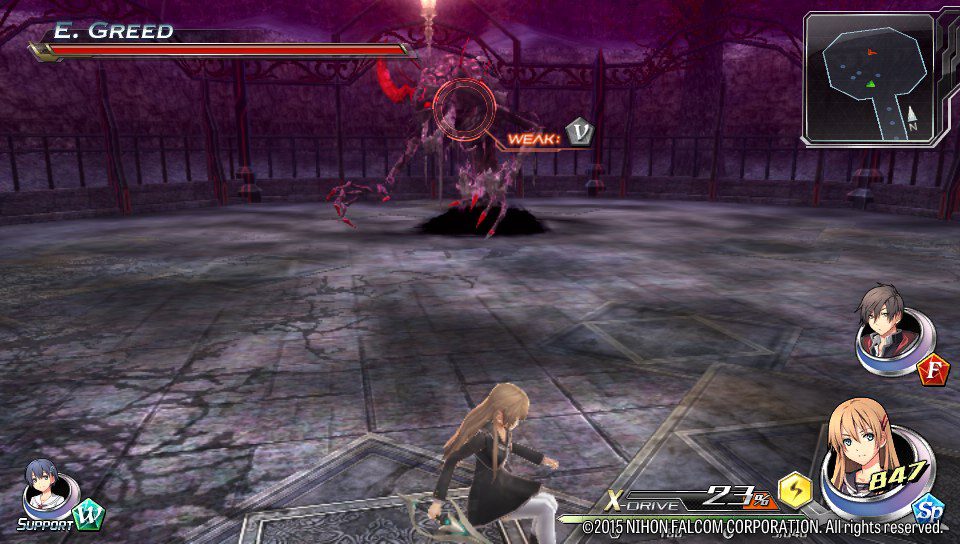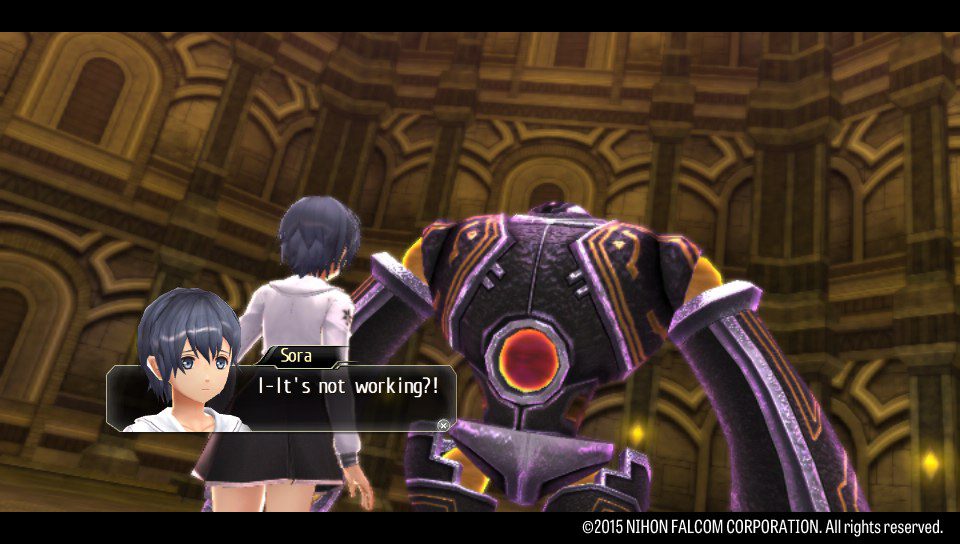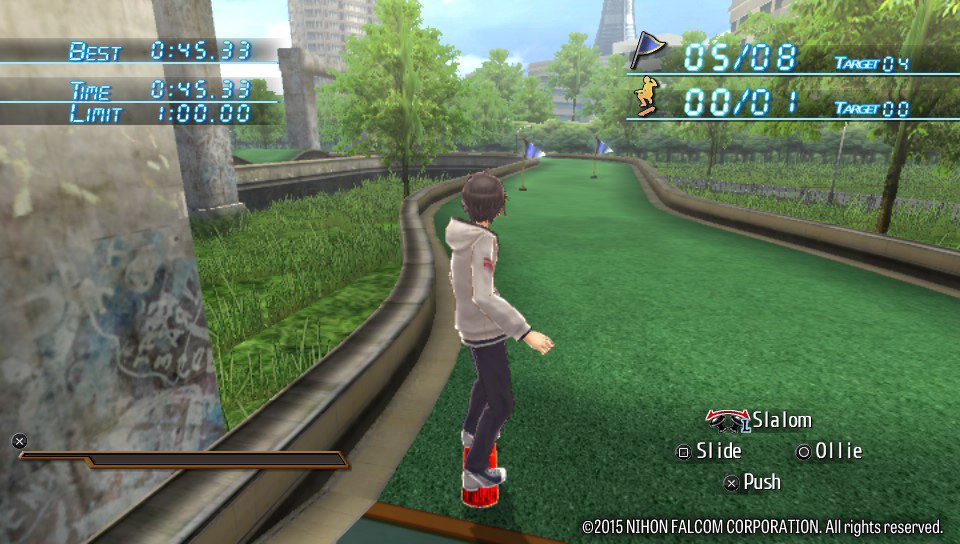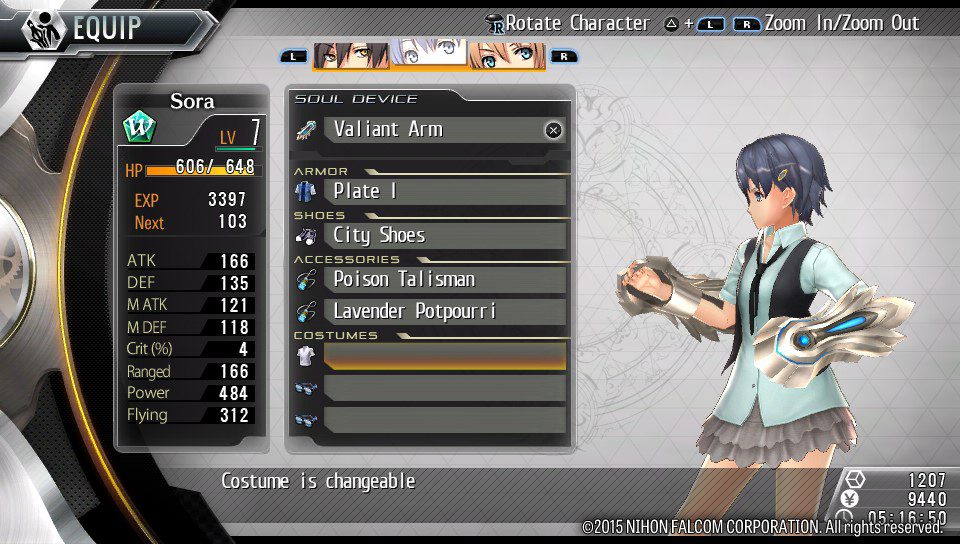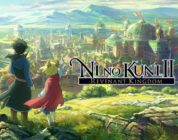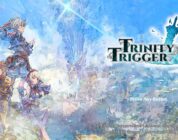The Japanese role-playing games genre has had some really high points (Persona 5) and some really low points (Akiba’s Beat) here lately. It used to be my go to pick for buying games, especially on the PS2 and the GBA. Of course, back then I could only get one or two games every quarter, so I had to pick things that would last. Tokyo Xanadu hits that average JRPG mark pretty hard, mashing a rather lackluster story with a kind of sweet battle system. It reminds me a lot of those discount RPGs I used to find at Walmart, but let’s really dissect this latest release from Nihon Falcom and see where Tokyo Xanadu succeeded, and consequently, where it struggled.
Now, it’s important to note that this release on the Vita is a localization of a game from 2015. It scored pretty well on Famitsu and fans were really eager to get their hands on more JRPG goodness. For Falcom fans, this is a wondrous release and we’ll also be seeing international versions of Tokyo Xanadu eX+, which is an expanded version of the game for PS4 and PC. These international releases feature Japanese voicing and English text. This puts Tokyo Xanadu as a best fit for those that already really enjoy other games from Falcom.
That being said, Tokyo Xanadu feels more like a low-budget anime game than anything real substantial. In the fictional Morimiya City, a place that draws parallels to actual places in Tokyo, the area is suddenly beseeched with strange disappearances. Stock protagonist Kou Tokisaka, while walking home late after his part-time job, runs into the perfect girl from school being harassed by some thugs. Kou steps in unnecessarily and is suddenly dumped into a strange labyrinth. Its not long before monsters appear and the girl from before, Asuka Hiiragi, swoops in with a silver sword to dispatch them effortlessly.
This setup could have been way more interesting if there was more punch added into the scene. Drama like this is hard to convey with stiff character models and sparse dialogue, but it could have been done with just a few tweaks. Coming off of Persona 5, this game feels incredibly slow in its narrative pacing. There can be further parallels drawn between Tokyo Xanadu and P5, as Xanadu has the player building social connections with characters in high school, while also living the secret life of a dungeon delver.
Going into these dungeons is where things actually pick up. Combat is done in third-person action, letting the player hack and slash their way (albeit simply) to victory. Monsters have attribute weaknesses that can be exploited, promoting constant switching of characters. Each character does feel a bit different, but the basic strategy of running up and smacking enemies remains. Luckily, Tokyo Xanadu has one mechanic that actually makes combat pretty awesome, dodge rolling.
It’s no secret I’m a huge fan of anything From Software touches and while Tokyo Xanadu doesn’t come close to that level of quality, I was surprised at just how much fun dodge rolling added to the combat. I imagine this would feel even better on higher difficulties, where the threat is much higher. On Normal, I ran into a few monsters that had my pulse racing, but it was pretty sparse.
While the combat is pretty simple, there are a few ways to go about attacking. Each character has a ranged attack that has different properties, plus a strong attack and a flying attack. Strong attacks come from holding down the ranged attack button down, which can unleash some stellar damage on foes. This makes for a simple button setup that works pretty well on the Vita. Dodging just outside an area attack, dropping a strong attack, and dancing away to switch characters is pretty fluid and it made combat way better than I expected.
Unfortunately, this combat is wasted on the enemy design. Each enemy is more functional than anything else, with frankly ugly visual elements that just make them forgettable. Some of the bosses look pretty imposing, but once again, they lack that special something. This could be how they’re rarely connected to the game’s world; the dungeons don’t have the visual flair that could have been put to work. Each one is a glorified linear path of hallways with monster closets and simple switch puzzles strewn about. Although, I still found myself enjoying the dungeon diving, it doesn’t take a whole lot of effort and is a solid way to relax before bed.
Sound design is also incredibly forgettable. In fact, I can’t remember any specific tune or cool moment where the music was used to great effect. Voice acting is pretty average and isn’t used nearly as often as I would have liked. Each scene is rather stiff and dialogue is rarely worthwhile, defaulting to basic fluff conversations that don’t elevate the game’s characters. There was one good story moment, where a girl was fighting with a karate teammate, but it could have been so much more meaningful with just a few changes to the script.
Falcom must have been extremely proud of their anime introduction; it plays at the beginning of each chapter. It was cool the first time, in a generic anime opening kind of way, but to see it at the start of each chapter is rather irritating, even if it can be skipped. Couple this with frequent loading screens and it just makes Tokyo Xanadu‘s non-combat sections feel incredibly slow.
Running around the various parts of the city can be interesting, as there are tons of characters to interact with. Kou also has three social stats he can raise by spending points on social interactions. These points are gained usually before the start of a main story section or as a reward. I rather like this way to make the player choose which characters to pursue socially. This limitation makes the choice of doing so more weighted and encourages a second playthrough. Although, these scenes just didn’t have the emotional connection I was hoping for.
While there are better JRPGs on the Vita, Tokyo Xanadu may fill that dry spell between major releases. Combat can be fun and going through dungeons is almost meditative in that it requires little energy. Trying it on harder difficulties may be the way to go for those looking for a tougher system to play with. Story wise though, there’s not much to celebrate.
Tokyo Xanadu is available now on PSVita. Tokyo Xanadu eX+ is expected to release sometime later this year. For more information, check out the official website.
A review code was provided for this review.
For more PSVita action, check out my review of Shantae: Half-Genie Hero.

